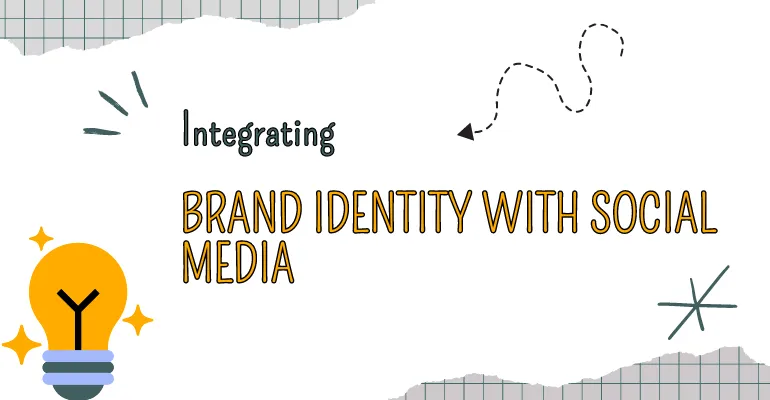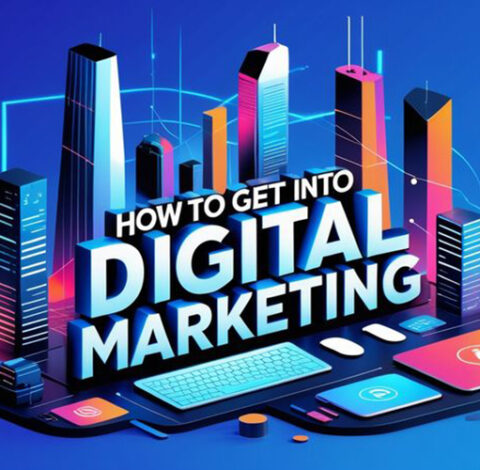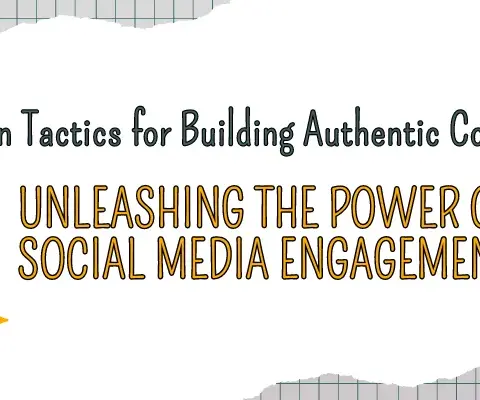
Integrating Brand Identity with Social Media
In the digital age, the integration of brand identity with social media platforms is more than just a trend; it’s a necessity for businesses looking to establish a strong online presence and engage with their audience effectively. This integration involves weaving the brand’s core values, messaging, and visual identity seamlessly into every aspect of its social media strategy. Done right, it can transform a company’s online presence, enhancing brand recognition, fostering customer loyalty, and ultimately driving business growth. Let’s delve into the art and science of integrating brand identity with social media.
Understanding the Importance of Brand Integration
Before diving into the specifics, it’s crucial to grasp why brand integration on social media matters. In essence, it’s about ensuring consistency across all touchpoints, both online and offline, to create a cohesive brand experience. This consistency reinforces brand recognition and credibility, making it easier for customers to associate positive attributes with your brand.
The Role of Consistency
Consistency in branding is akin to wearing a uniform; it signals professionalism and reliability. When your brand’s colors, logos, and messaging appear consistently across social media platforms, it reassures customers that they are dealing with a reputable entity. Moreover, it simplifies the process of recognizing and remembering your brand amidst the clutter of digital content.
Crafting a Cohesive Visual Identity
Visual identity forms the backbone of brand integration on social media. It encompasses everything from color schemes and typography to imagery and iconography. A well-designed visual identity is not just aesthetically pleasing; it communicates your brand’s personality and values at a glance.
Tips for Creating a Cohesive Visual Identity
- Define Your Brand Personality: Start by identifying the emotions and characteristics you want your brand to evoke. This will guide the design choices for your visual identity.
- Use Consistent Colors and Logos: Ensure that your brand’s primary colors and logo are prominently featured across all social media platforms. This helps in immediate brand recognition.
- Adopt a Unified Typography Style: Choose fonts that reflect your brand’s personality and use them consistently across all platforms.
Engaging Content That Reflects Your Brand
Content is the heart of social media marketing, and it plays a crucial role in reinforcing your brand identity. Whether it’s blog posts, videos, infographics, or live sessions, every piece of content should align with your brand’s values and messaging.
Strategies for Brand-Aligned Content Creation
- Tell Your Story: Share stories that highlight your brand’s journey, mission, and values. Authentic storytelling can deeply resonate with your audience.
- Educate and Entertain: Offer value through informative content that educates your audience while keeping them entertained. This can include tips, tutorials, and industry insights.
- Showcase User-Generated Content: Encourage your followers to share their experiences with your brand. User-generated content not only provides fresh, authentic content but also fosters a sense of community.
Monitoring and Adjusting Your Strategy
Integrating brand identity with social media is an ongoing process that requires constant monitoring and adjustment. Analyzing performance metrics and audience feedback can provide invaluable insights into what works and what doesn’t, allowing you to refine your strategy over time.
Key Performance Indicators (KPIs)
- Brand Awareness: Measure how many people recognize your brand after seeing your social media content.
- Engagement Rates: Track the number of likes, shares, comments, and saves per post to gauge audience interaction.
- Conversion Rates: Determine the percentage of social media engagements that lead to desired actions, such as website visits or purchases.
Conclusion
Integrating brand identity with social media is a multifaceted endeavor that demands careful planning, consistent execution, and continuous refinement. By maintaining a cohesive visual identity, crafting engaging, brand-aligned content, and closely monitoring your performance, you can create a powerful online presence that resonates with your audience and drives your brand forward. In the competitive digital landscape, standing out requires more than just being present; it demands being authentically yourself, and letting your brand shine through every interaction.
Revolutionizing Marketing with AI: How Artificial Intelligence Is Transforming Content Creation
In the ever-evolving landscape of digital marketing, artificial intelligence (AI) has emerged as a transformative force, reshaping how businesses engage with their audiences. One of the most exciting applications of AI in marketing is its ability to generate compelling content that resonates with target demographics. By leveraging advanced algorithms and machine learning techniques, AI-powered tools are capable of creating personalized, engaging content that traditional methods struggle to match. This blog explores how AI is revolutionizing content creation in marketing, offering insights into its capabilities, benefits, and the future prospects of this innovative technology.
The Rise of AI in Content Creation
AI has been making waves in various sectors, including healthcare, finance, and entertainment, but its impact on marketing, particularly in content creation, is nothing short of revolutionary. AI tools can analyze vast amounts of data to understand consumer behavior, preferences, and trends, enabling the creation of highly targeted and personalized content. This capability not only enhances the relevance and effectiveness of marketing efforts but also sets a new standard for customer engagement.
Advantages of AI-Powered Content Creation
- Personalization: AI can tailor content to individual user profiles, ensuring that each piece of content feels uniquely designed for the recipient.
- Efficiency: AI automates the content creation process, reducing the time and resources required to produce high-quality content.
- Quality and Creativity: AI tools can generate creative content ideas and drafts, often surpassing human creativity in terms of volume and diversity.
How AI Enhances Content Quality
One of the significant advantages of AI in content creation is its ability to enhance content quality. By analyzing large datasets, AI can identify patterns, trends, and insights that might otherwise go unnoticed. This analytical prowess enables the generation of content that is not only accurate and relevant but also engaging and persuasive.
AI Tools for Content Creation
Several AI tools are currently available that cater to different aspects of content creation, from idea generation to final editing. Some notable examples include:
- Grammarly: An AI-powered writing assistant that checks grammar, spelling, and plagiarism, helping to ensure content quality.
- Canva’s Content Planner: Uses AI to suggest content ideas and layouts, streamlining the design process.
- ChatGPT: A language model that generates human-like text, useful for creating blog posts, social media captions, and more.
The Future of AI in Marketing Content
As AI technology continues to advance, its role in marketing content is expected to expand further. The future holds promising developments, including more sophisticated personalization, the integration of multimedia elements, and the potential for AI to predict market trends and consumer behavior with even greater accuracy.
Ethical Considerations
With the rapid advancement of AI in content creation, it’s crucial to address ethical considerations. Issues such as bias in AI algorithms, privacy concerns related to data collection, and the impact of automation on jobs require thoughtful discussion and regulation.
Conclusion
Artificial intelligence is poised to redefine marketing content creation, offering unprecedented levels of personalization, efficiency, and quality. By leveraging AI, marketers can create content that resonates more deeply with their audience, driving engagement and conversions. As AI continues to evolve, it will undoubtedly bring new challenges and opportunities, underscoring the importance of staying informed and adaptive in this rapidly changing field. Embracing AI in content creation is not just about adopting new technologies; it’s about transforming how we connect with our audience, ensuring that our marketing efforts remain relevant and impactful in an increasingly digital world.









































